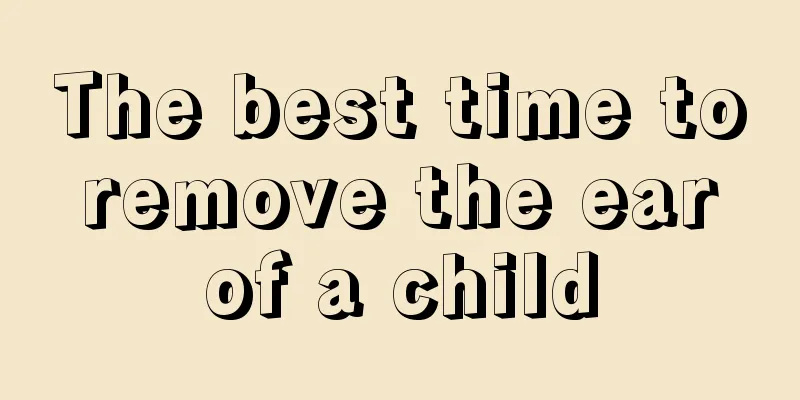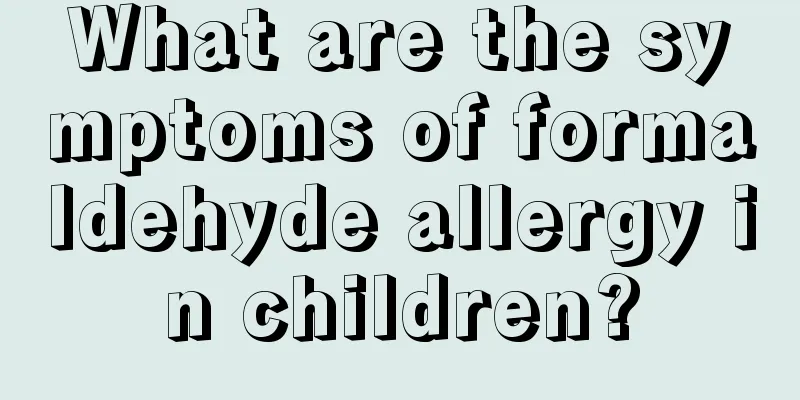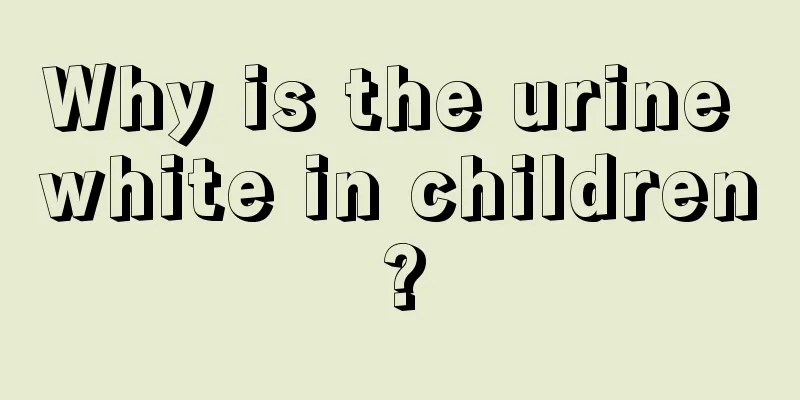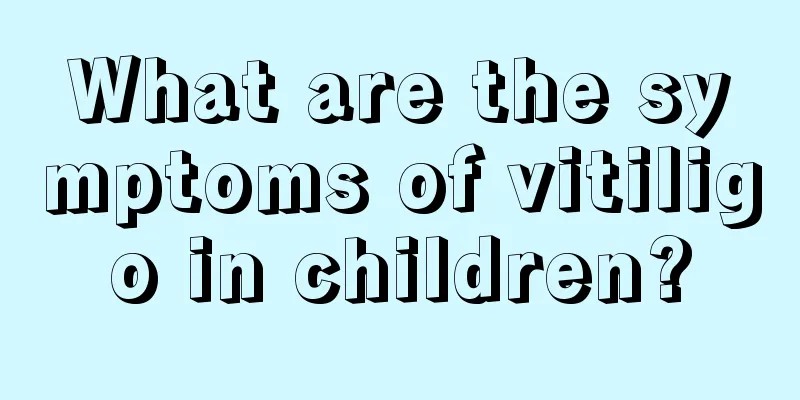How long does it take for a baby to recover from viral diarrhea?
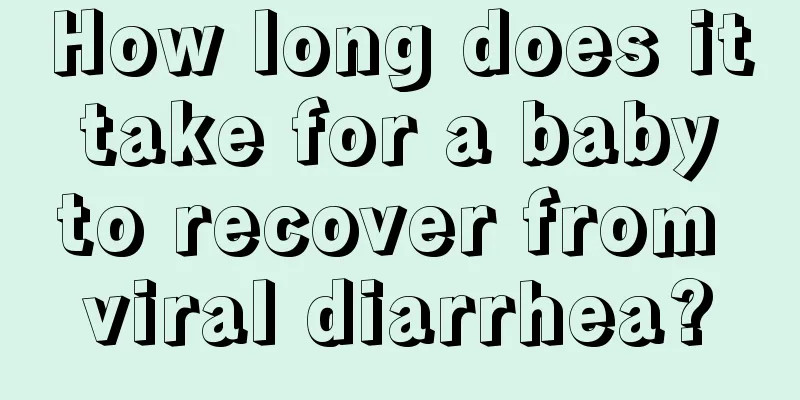
|
Baby's viral diarrhea is caused by inflammation due to viral infection of the gastrointestinal tract. The virus needs to be eliminated before the diarrhea can be treated. There are many types of viral infections. We should use medication to treat the gastrointestinal tract. In severe cases, the gastrointestinal tract needs to be cleaned. As for how long it takes for a baby to recover from viral diarrhea, it depends on each person's physical condition and the method of medication. Viral diarrhea, also known as viral gastroenteritis, is a group of acute intestinal infectious diseases caused by viruses. Rotavirus is a common pathogen and is common in pediatric diarrhea. The clinical characteristics are acute onset, nausea, vomiting, abdominal pain, diarrhea, watery or loose stools, and may also be accompanied by fever and general discomfort. Rotavirus infection can not only cause diarrhea, but also cause multi-system damage, adversely affecting the health of infants and young children, and even endangering their lives. According to statistics, worldwide, the number of children who die from rotavirus infection each year accounts for 17.5%-34% of the total number of children hospitalized with viral diarrhea. In developing countries, rotavirus diarrhea causes 600,000 to 870,000 deaths each year. Why is the mortality rate from viral diarrhea so high? In fact, it is not the viral diarrhea itself that causes the death of infants and young children, but often the inappropriate treatment methods. Some parents and even doctors do not conduct laboratory tests to determine the specific cause of diarrhea, but rely on "experience" to give their children antibiotics and anti-inflammatory drugs for treatment. However, antibiotics have no effect on viruses. Instead, they kill beneficial intestinal bacteria, leading to intestinal flora imbalance, an increase in harmful bacteria, and the toxins produced that aggravate damage to the baby's intestinal mucosa. We all know that 70% of the human body's immunity comes from the intestines. Damage to the balance of flora and intestinal mucosa will destroy the baby's own immunity. This will result in the virus being unable to be cleared by our bodies, entering the blood through the damaged intestinal mucosa, and spreading throughout the body, causing viremia and multiple organ failure and death. Warm reminder: If your baby has diarrhea, you must go to the hospital for examination to determine the cause of diarrhea and then take appropriate treatment. So, how to treat viral diarrhea scientifically? Due to the large number of virus types, poor cross-protection, and high variability, there is currently no specific drug for the virus. Resisting viral infection mainly depends on one's own ability to resist viral infection, which is what we often call "resistance" or "immunity". The intestine is the body's natural barrier of defense, and the body's immunity depends on mucosal immunity. Therefore, repairing intestinal mucosa and improving immunity are the main methods for treating viral diarrhea. The World Health Organization recommends six criteria for selecting drugs for infectious diarrhea: high efficacy, oral administration, compatibility with oral rehydration solution, non-intestinal absorption, no effect on intestinal absorption function (especially the absorption of glucose and amino acids), and resistance to a range of intestinal pathogens. Clostridium butyricum, which not only meets the above international standards but can also repair intestinal mucosa and enhance immunity, is undoubtedly an ideal medicine. Clostridium butyricum is a probiotic that is very safe and suitable for babies. Clostridium butyricum can produce a large amount of butyric acid, which directly affects the repair of the intestinal mucosa of babies with diarrhea, improves mucosal immunity, and can promote the growth of beneficial bacteria in the intestines, inhibit the growth of harmful bacteria, restore the balance of intestinal flora, enhance the biological barrier function, effectively prevent and treat viral diseases, reduce deaths, improve efficacy and reduce treatment costs. |
<<: What to do if your baby has acute diarrhea
>>: How long will it take for a baby to recover from teething diarrhea?
Recommend
Introduction to the time and precautions of pediatric massage
Babies themselves do not know how to exercise and...
What are the symptoms of appendicitis in children?
Appendicitis is familiar to everyone, and its hig...
What is the reason for bad breath in a 10-month-old baby?
Bad breath is a disease of the oral cavity, and t...
What to do if primary school students have weak memory
Primary school students are at the age when they ...
What causes headaches and dizziness in children?
Children's health is an issue of particular c...
How to treat missing teeth in children
Teeth are indispensable to everyone, but when tee...
How many teeth does a two and a half year old baby have?
A two and a half year old baby has about 20 teeth...
Treatment for newborns who only fart but not defecate
Nowadays, it is not uncommon for newborns to only...
What are the symptoms of HPV infection in children
When children are infected with HPV, they are inf...
What should I do if my child has prickly heat on his forehead?
Children often suffer from various diseases becau...
How long does it take for a child's baby teeth to grow new teeth?
Teeth are an important chewing organ for the huma...
Several misunderstandings about baby supplements---ignorant love equals harm
As a nutritionist and a mother, I certainly pay m...
If I sleep with my head tilted, will it still be tilted when I grow up?
Sleeping with a tilted head is a colloquial term ...
What are the symptoms of otitis media in a five-month-old baby?
The ear is an indispensable organ of our human bo...
Can a 7 month old baby eat noodles?
Noodles are a common food in our lives, and there...




